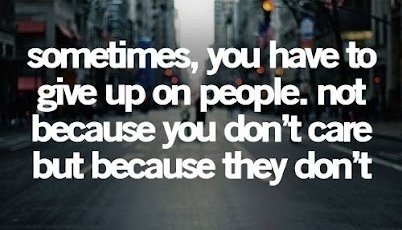
Lessons Learned: The Secret To Managing Expectations
Have you ever been in a situation in which you had to depend on someone to help you to get the job done?
Of course you have, we all have.
How did you feel? Depending upon the other person or persons and your previous experience with them, you either felt really comfortable or somewhat apprehensive.
Based on the above, the obvious course of action is to only deal with those individuals with whom you have had the best experience. Case closed.
Unfortunately, life is not always so cut and dried in that you sometimes don't have the option to choose the people upon whose efforts you will need to depend.
In these types of situations, it is very easy to become frustrated - even angry. As justified as those emotions may be however, they are not likely to produce the desired outcome.
This is where managing expectations are so important.
Who's Expectations Do You Need To Manage?
I have to admit that in heading up a business that is based on delivering the highest level of customer service to our clients, managing expectations has traditionally meant focusing on meeting the expectations of others. Specifically, having a clear understanding of what we could (or could not do), so that any commitments we make to our customers are met - and ideally exceeded.
In these instances, we manage our customers' expectations based on what we know and can do ourselves.
If something happens that is in our control, we can recognize it and take the immediate measures to usually correct it quickly.
But what happens when your role changes from the one who is being depended upon to get the job done, to the one who has to depend on someone else?
Managing expectations in this scenario takes on a whole new meaning.
During a recent transfer from our old network service provider to our new provider, I found my level of disappointment was only surpassed by feelings of both frustration, and yes, even a little anger mixed in for good measure.
Now I guess that I should not have been too surprised by the turn of events in that it was the original provider's slow response and seeming disinterest that prompted my decision to make the switch in the first place. If you think about it, why would their service improve when it was needed to move my business away from them?
So for my own peace of mind, I had to better manage my own expectations, and recognize the things that I could do, and those things that were - at least for the immediate period, out of my control.
In this regard, I created an expectation and consequence checklist.
1. Assess the true impact
To start, I assessed the impact of their service shortfalls on my immediate ability to conduct business and meet my customer's demands.
While frustrating, I discovered that the delays in moving my website from one platform to the next, had little if any effect on my ability to maintain the high service standards I had established for my customers.
This was a relief, because my first and foremost interest was our relationship with our customers. If they were not affected by this situation then my level of concern would (and did) drop significantly.
2. What Are My Options
Now some might suggest that this should be number one on my checklist. However I discovered that it is far better to assess options when you do not feel the added pressure of unknown consequences.
For example, looking at options in a state of frustration or a false sense of urgency, might lead you to make decisions that take you from the proverbial frying pan to the fire. In short, you can make things worse as opposed to better.
Knowing that there was not going to be an immediate impact on my ability to service my customers, meant that I could adopt of more relaxed sense of urgency, and therefore leave the forest to actually see all of the trees.
This also meant that I could calmly contemplate the absolute worst case scenario being that the old provider fail completely, forcing me to recreate my entire website on the new provider's platform. If this were going to be the route I would ultimately have to take, I reasoned that we should chart our course so that we can minimize any bumps along the way.
In and of itself facing the worst case scenario head on, was both liberating and empowering.
This is why options should not be considered before understanding the immediate consequences or impact of someone else's service failings.
3. Learn From The Experience
Going forward, and recognizing the likelihood that this will not be the last time someone let's me down, I have established a process so that I never find myself the victim of acute response syndrome.
Acute response syndrome is when negative events and or circumstances control you and your actions as opposed to the other way around. Or to put it another way, when the circumstances become your focal point you can get lost in them. You can lose sight of everything else including the obvious solutions or alternatives that may be available to you to rectify the situation.
Going forward, I now know that I have to always take a step back, take a deep breath and see any given situation within the context of a bigger picture. This gives you the ability to keep all of your options open.
In the end you ultimately have to recognize that no matter how well you plan, or what process you go through to select the right business partners, somewhere, and at some point in time, someone is going to miss the mark.
The question is simply this . . . can you effectively manage your own expectations during these unwelcome and frustrating periods to achieve a successful outcome.
30

